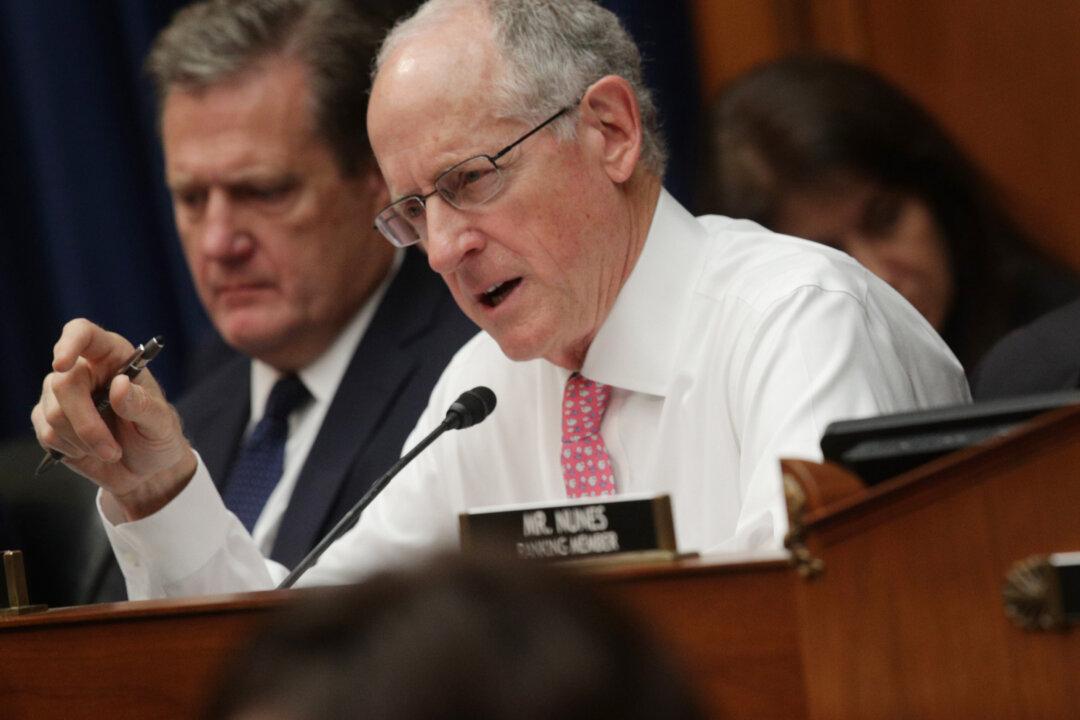GOP lawmakers on Nov. 13 motioned to subpoena the person who filed a complaint against President Donald Trump over his July phone call with Ukrainian President Volodymyr Zelensky.
Rep. Mike Conaway (R-Texas) asked House Intelligence Committee Chairman Adam Schiff (D-Calif.) to make a motion and then requested the committee subpoena the whistleblower to testify to the committee in a closed-door hearing.





